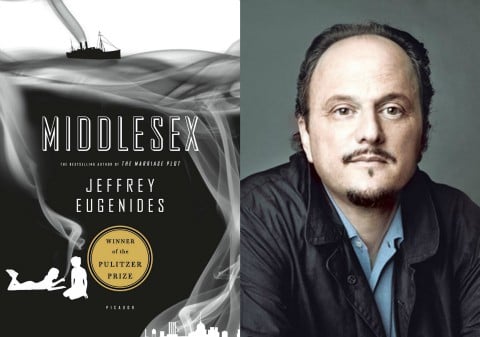
Our next read in our TowleREAD series comes from acclaimed best-selling author Jeffrey Eugenides and his Pulitzer Prize-winning 2002 novel, Middlesex.
A contemporary classic about intersex identity, Middlesex began as Eugenides' attempt to tell a story about an intersex person grounded in reality rather than myth. Eugenides told The Guardian,
“The idea was to write a fictional book about a hermaphrodite, and I wanted it to be medically accurate – to be a story of a real hermaphrodite, rather than a fanciful creature like Tiresias or Orlando who could shift in a paragraph; to avail myself of the mythological connections without making the character a myth.”
However, what began as a biographical account of an intersex teenage girl (named Calliope/Callie) who grows into an intersex adult male (Cal), soon became a magnum opus for Eugenides. In an interview with The Oprah Book Club (which Middlesex was named to in 2007), Eugenides talked about the real medical condition that inspired Middlesex and how that expanded the scope of his interest:
“I spent a lot of time those first months in the medical library at Columbia. It was there that I came across the condition I use in Middlesex, 5-alpha-reducatse deficiency syndrome. The salient fact about this condition is that it's caused by a recessive genetic mutation. Populations who have the mutation tend to be isolated, often inbred. When I learned that, I began to think about the book in a different way. I no longer wanted to write merely a fictional autobiography of a hermaphrodite but a longer book—a comic epic—that would trace the transmigrations of a genetic mutation down though the bloodlines of a single family.”
That single family happens to be a Greek family, based largely on Eugenides' own, who immigrates to Detroit, Michigan and bears witness to many major historical events of the 20th century. While their stories are told in a mostly grand third person, Callie gets to tell her story in her own words.
 Middlesex has won mostly praise from the intersex community, with some objecting to Eugenides' use of the word “hermaphrodite” (since the book's publication he says he has promised the intersex community “never to refer to actual, living people as hermaphrodites”, reserving that term for mythological characters only). Others have criticized Eugenides for connecting young Callie's same-sex attraction to her being intersex. The New York Review of Books wrote, “Why is it the case that Callie's attraction to girls “means” she's a boy? Couldn't she simply be gay?” Responding, Eugenides stated,
Middlesex has won mostly praise from the intersex community, with some objecting to Eugenides' use of the word “hermaphrodite” (since the book's publication he says he has promised the intersex community “never to refer to actual, living people as hermaphrodites”, reserving that term for mythological characters only). Others have criticized Eugenides for connecting young Callie's same-sex attraction to her being intersex. The New York Review of Books wrote, “Why is it the case that Callie's attraction to girls “means” she's a boy? Couldn't she simply be gay?” Responding, Eugenides stated,
“[O]bviously, same-sex attraction doesn't determine gender identity. Gay men are men. The thing is, though, Middlesex isn't a novel about gay identity. It's a novel about intersex identity. And not all intersex identity, but just that of one particular person. That Cal discovers his sexuality in the way he does is not indicative of other people's experience, only his.”
In any case, Middlesex makes an engrossing read that does something remarkable that many LGBT readers will find both relatable and relevant: it takes a subject society deems a monster and shows her to be a human.
As part of its sponsorship of TowleREAD, Audible is offering a free download of Jeffrey Eugenides' Middlesex at Audible.com with a 30-day trial membership for Towleroad readers.
Listen to Eugenides read a powerful excerpt from Middlesex where Callie goes to the public library to learn about some of the words her doctors use to describe her, below:

Sponsored by Audble.
(Top photo by Gasper Tringale)



